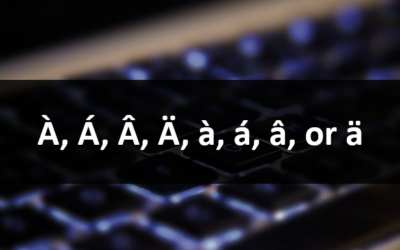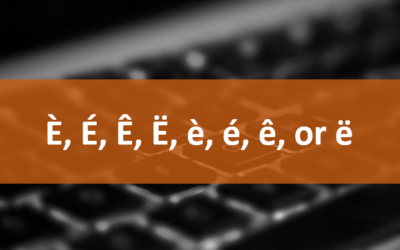Microsoft Word: Visual Basic for Applications
(VBA) Macros | Introduction
Microsoft Word Training Series | Level 4
Course Details
Duration: 2 days (9 am – 4 pm)
Microsoft® Word® Versions: 2013 | 2016 | 2019 | 2021 | 365 (Windows)
Delivery Methods (Instructor-led): In-person (Live classroom) | Virtual classroom
Course Dates: Check back soon for new dates (Virtual classroom) | View schedule ![]()
Course Fee: $495 CAD per person (Virtual classroom), $545 CAD per person (Bring your own device for live classroom courses) or $595 CAD per person + HST (Avantix Learning provides device for live classroom courses)*
Custom training: This course may be delivered at your site or ours as an instructor-led or virtual classroom solution. Contact us at info@avantixlearning.ca for more information including savings for custom group training.
Public scheduled courses are delivered as live classroom training or virtual classroom training (as indicated). All courses are instructor-led.
Course Overview
This course is designed for the Microsoft Word user who wants to automate tasks using Visual Basic for Applications (VBA) but has little or no programming experience. Students will record VBA macros and then learn to create and work with modules, procedures, variables and constants in the Visual Basic Editor. Using many different samples, students will also create if statements, loops and dialog boxes.
Prerequisite: Microsoft Word: Intermediate / Advanced or equivalent knowledge and skills.
Location and timing: Public scheduled courses are held online in virtual classroom format or in downtown Toronto and run from 9:00 am to 4:00 pm (Eastern Time).
Related training: View all Microsoft Word courses >
INCLUDED IN THIS COURSE
- Comprehensive course manual or published book
- Keyboard shortcuts quick reference
- Sample and exercise files
- Refreshments (for classes conducted in Avantix Learning classrooms)
- Follow-up email support
Course Topics
Overview of VBA Macro Concepts
- What is a VBA macro?
- Displaying the Developer tab in Microsoft Word
- Creating macros using the macro recorder in Microsoft Word
- Limitations of recorded macros
- Saving files with macros
Working with the Visual Basic Editor (VBE)
- Opening and closing the VBA editor
- Using the Project Explorer and the Code Window
- Moving between Microsoft Word and the VBA editor
- Overview of the properties window and the work area
- The basics of writing code
Macro Security and Trust Centre Settings
- Specifying macro security settings
- Creating a trusted folder
Getting Started with VBA
- Basic syntax logic
- Sub procedures
- Naming macros
- Working with modules and projects
- Using methods and properties
- Adding comments
Running Macros
- Running macros using the keyboard and the Macro dialog box
- Running macros using buttons
Procedures
- Sub procedures
- Running procedures within other procedures
Variables and Constants
- Using constants and variables
- Types of variables
- Constant and variable declarations
- Declaring several variables
- Procedure level scope, module level scope or public scope
Decision Structures
- Writing If statements
- Using If for single and multiple conditions
User Interaction
- Overview of the dialogs collection
- Using input boxes and extracting answers
- Using message boxes for input
- Specifying status bar messages
- Using dialog box arguments
- Using the Execute, Show and Display methods
Looping Structures
- Looping for items
- Adding an exit
- Using the Do Loop statement
Working With Text
- Text and document components
- Using the story range
- Using the selection and range objects
- Inserting text
Document Management
- Using opening and closing methods
- Using the Save and SaveAs methods
- Returning and retrieving information
- Referencing files, folders and drives
Error Handling
- Types of errors
- Simple error handling
- Resuming macros
- Decision structures when dealing with errors
Do you need more information? Contact us!
*Prices subject to change.
Copyright 2024 Avantix® Learning

Custom training
Register now for a public course or contact us at info@avantixlearning.ca for more information about any of our courses or to discuss custom training options (virtual classroom or live classroom).
Related courses
Microsoft Word: Intermediate / Advanced
Microsoft Word: Accessible Documents
Microsoft Word: eBook Design, Publishing and Distribution
You may like
How to Insert or Type I with an Accent Mark in Word (Í, í, Ì, ì, Î, î, Ï, or ï)
You can insert or type i with an accent mark in Word using built-in tools or keyboard shortcuts (including Alt code shortcuts). The letter i can be inserted with an accent in both upper or lower case. The following are common accented characters that you can insert or type in Word in upper or lower case: grave (Ì or ì), acute (Í or í), circumflex (Î or î) and umlaut (Ï or ï).
How to Insert or Type A with an Accent Mark in Word (À, Á, Â, Ä, à, á, â, or ä)
You can insert or type a with an accent mark in Word using built-in tools or keyboard shortcuts (including Alt code shortcuts). The letter a can be inserted with an accent in both upper or lower case. The following are common accented characters that you can insert or type in Word in upper or lower case: grave (À or à), acute (Á or á), circumflex (Â or â) and umlaut (Ä or ä).
10 Word Shortcuts to Select Text Using a Keyboard
You can use several shortcuts in Word to select text in your documents using only your keyboard. When you select text, it will typically be highlighted in grey. After you select text, you can cut, copy, or delete the selected text or apply character or paragraph formatting.
How to Generate Random Text in Word
If you are creating a Microsoft Word document, template or mockup and you want to create placeholder text, you can generate random text using the built-in RAND function or LOREM function (which generates Latin or Lorem ipsum text).
How to Center Text Vertically in a Word Table (and Fix Common Issues)
You can center or align text vertically in cells in a Word table using commands in the Table Design or Table Tools Design tab in the Ribbon. If the text doesn't seem to align correctly, there are several common issues that may be affecting the alignment including extra blank paragraphs, paragraph spacing and cell margins.
How to Insert a Watermark in Word (like DRAFT)
You can insert a watermark in the background of one or more pages in a Microsoft Word document. Common watermarks are text such as DRAFT or CONFIDENTIAL but you can also add a picture watermark.
You may also like
How to Insert or Type E with an Accent Mark in PowerPoint (È, É, Ê, Ë, è, é, ê, or ë)
You can insert or type e with an accent mark in PowerPoint using built-in tools or keyboard shortcuts (including Alt code shortcuts). The letter e can be inserted with an accent in both upper or lower case in text boxes or placeholders on slides, the slide master or layouts. The following are common accents in upper or lower case – È, É, Ê, Ë, è, é, ê, or ë.
How to Fade a Picture or Part of a Picture in PowerPoint (Using a Gradient)
You can fade a picture in PowerPoint by drawing a rectangle shape on top of the picture and then filling the rectangle with a gradient from opaque to transparent. This technique is often used to fade an image into the background of a slide. Since the rectangle is placed on top of the image and then text may be placed on top of the rectangle, you may need to reorder the objects.
How to Lock an Image, Shape or Other Object in PowerPoint
You can now lock an image, shape or other object in PowerPoint. Objects can be locked in Normal View or Slide Master View. Only PowerPoint 365 users can lock objects to prevent moving and resizing. This is helpful if you want to select and move other objects on the slide or prevent others from moving or resizing an object. You can lock items using the context menu or the Selection Pane.
Microsoft, the Microsoft logo, Microsoft Office and related Microsoft applications and logos are registered trademarks of Microsoft Corporation in Canada, US and other countries. All other trademarks are the property of the registered owners.
Avantix Learning |18 King Street East, Suite 1400, Toronto, Ontario, Canada M5C 1C4 | Contact us at info@avantixlearning.ca









